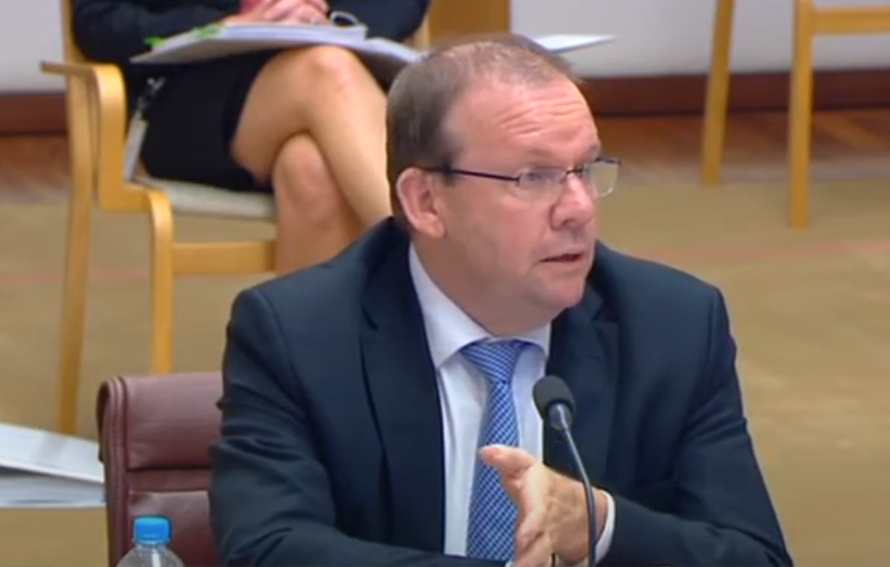
The ANAO office in Barton. Its new Corporate Plan highlights ethics, integrity and training. Photo: Ian Bushnell.
Australia’s key public sector watchdog will establish its own dedicated training program and expand its focus on the ethical behaviour of Commonwealth public servants as part of its 2022-23 Corporate Plan.
The Australian National Audit Office plans to set up an ANAO Academy as part of its Workforce Plan to grow its own talent in response to the fierce competition for staff across the public sector.
It says the program will deliver a complete learning and development curriculum tailored to specific auditing skills, technical and non-technical, and to developing future leaders.
“While competition within the recruitment environment requires us to cast our net wider for talent, our attention has turned further towards our capacity to ‘grow our own’ and support the professional development of our people,” the Corporate Plan says.
The ANAO will recruit staff with broad skills and teach them how to become great auditors, it says.
Auditor-General Grant Hehir has highlighted the importance of public servants acting ethically in a number reports relating to the administration of grants, which became known as the sports and carpark rorts affairs where Labor accused the previous government of running electoral slush funds.
The Corporate Plan says technical compliance with the rules is not enough to ensure the integrity of public servants’ actions and that the intent behind the rules needs to be recognised.

Auditor-General Grant Hehir has highlighted the requirement of public servants to act ethically. Photo: Parliament House
The ANAO is now finalising the design of an appropriate audit framework against which to test ethics.
“Greater scrutiny in this area will help ensure that the public sector is looking beyond technical compliance and operating in line with the intent of established rules and frameworks, alongside community expectations of integrity,” the plan says.
It says that over the next four years, the ANAO will increase its focus on the ethical aspect of proper use and management of public resources, including audits of entity governance and ethical frameworks and the consideration of ethical requirements in procurement and grants administration.
The ANAO has identified across a number of audits a lack of adequate documentation and records to justify decisions and actions.
“Lack of proper documentation of decision-making processes makes it difficult for entities to be assured that the activity was undertaken with integrity and without improper influence or consideration of inappropriate factors,” the plan says.
The focus on ethics comes as the ANAO recognises the complexities of auditing in a contestable environment where government and service provider information is held not only as commercial-in-confidence, but at increasingly higher levels of security classification.
“The ANAO will continue to manage the complexities that such a shift creates in the conduct of our audit work and, as necessary, bring them to the Parliament’s attention,” the plan says.
“Further, in an environment where accountable authorities are charged with delivering the government’s agenda, the ANAO identifies delivery risks against the frameworks established by the Parliament, government and by accountable authorities themselves.
“This can create tension when the principles and risk management approaches of recent reforms and regulatory frameworks do not deliver the level of compliance with mandatory requirements that the Parliament expects.”
The Plan says there is evidence that the Parliament wants a desire for more system-level assurance and transparency of the operation of public sector frameworks, such as performance reporting, corporate planning and risk management rules under the Public Governance, Performance and Accountability Act 2013; Protective Security Policy Framework, including cybersecurity rules; Commonwealth Procurement Rules; and Commonwealth Grant Rules and Guidelines.
“Increasingly, the Parliament is also seeking insight from the ANAO on the relationship between compliance and organisational culture,” the plan says.
“The ANAO will continue to focus on providing transparency and accountability on regulatory frameworks through our audit work.”
In December, after the Federal Budget, the ANAO will review the annual audit work program to ensure its audit strategy remains appropriate to the policy and risk environment.
“We expect that the policy agenda of the government will bring challenges for advice and implementation within the APS,” the plan says.
“The ANAO is also cognisant of the government’s intention to establish a national integrity commission. The ANAO is an integrity institution, with integrity positioned as one of our core values. We will continue to observe the development of this policy agenda and its potential impact on the operations and independence of the ANAO.”
The ANAO will also be boosting its technological capability, including increasing opportunities for remote access to entity systems.





















